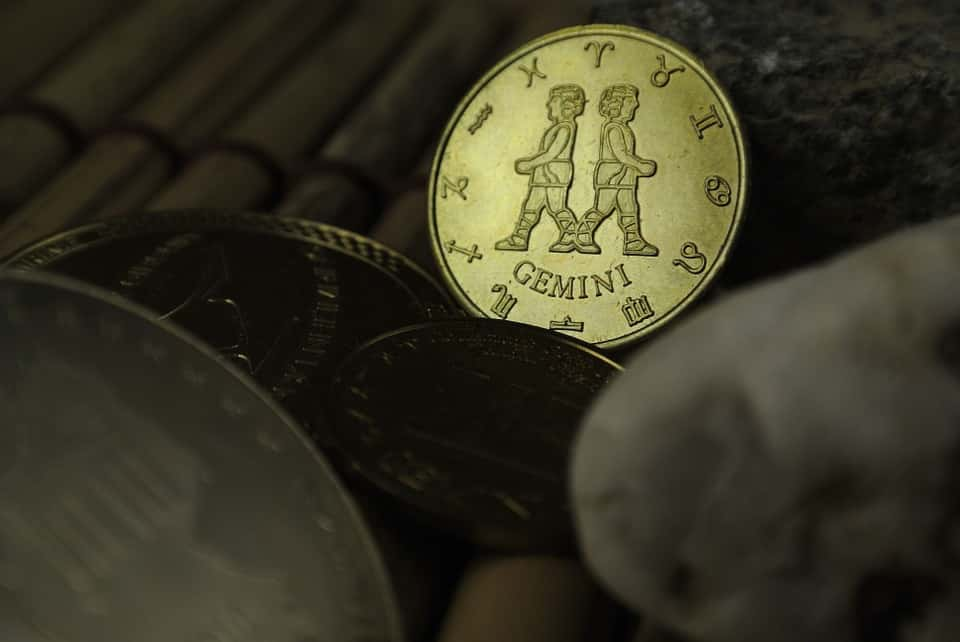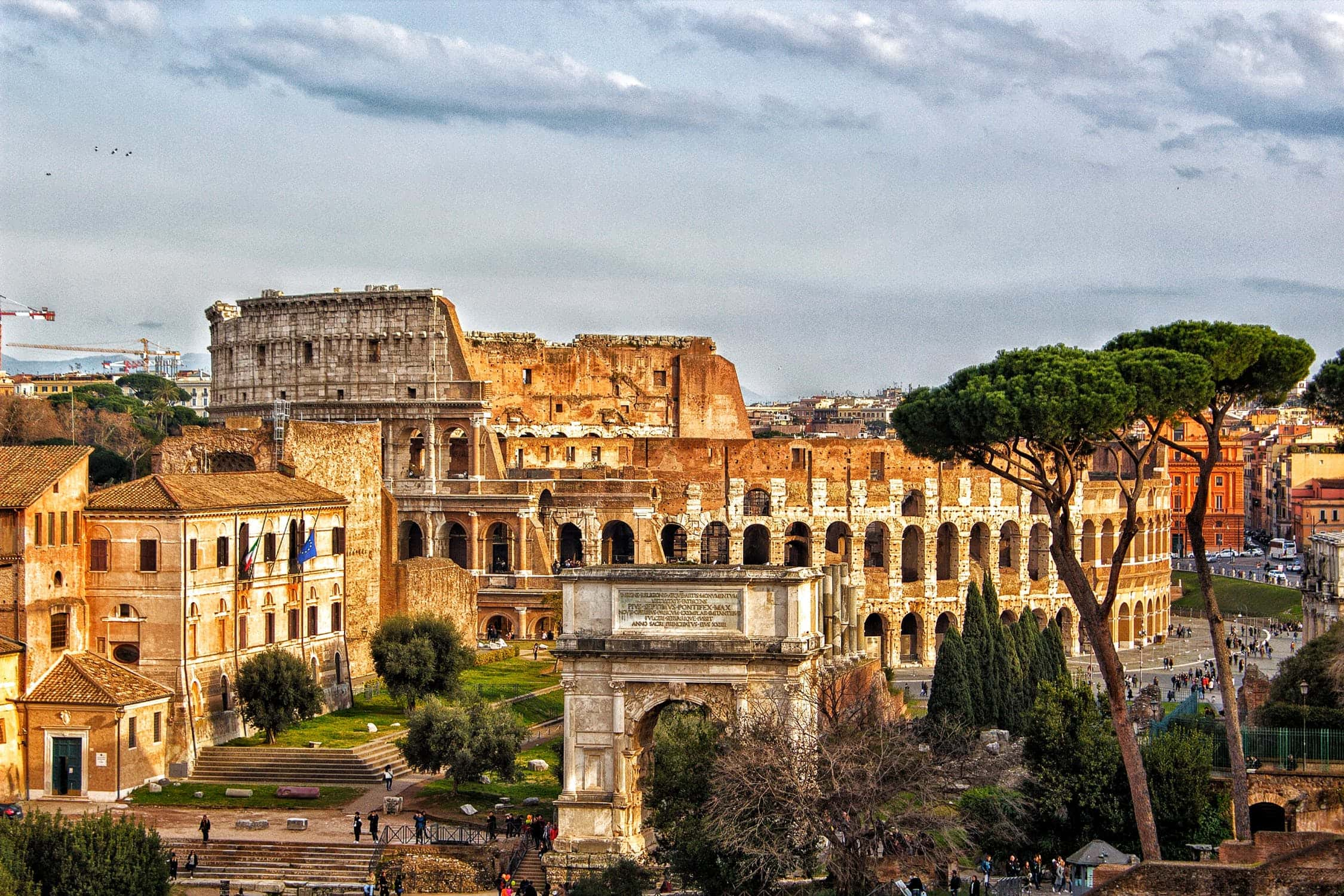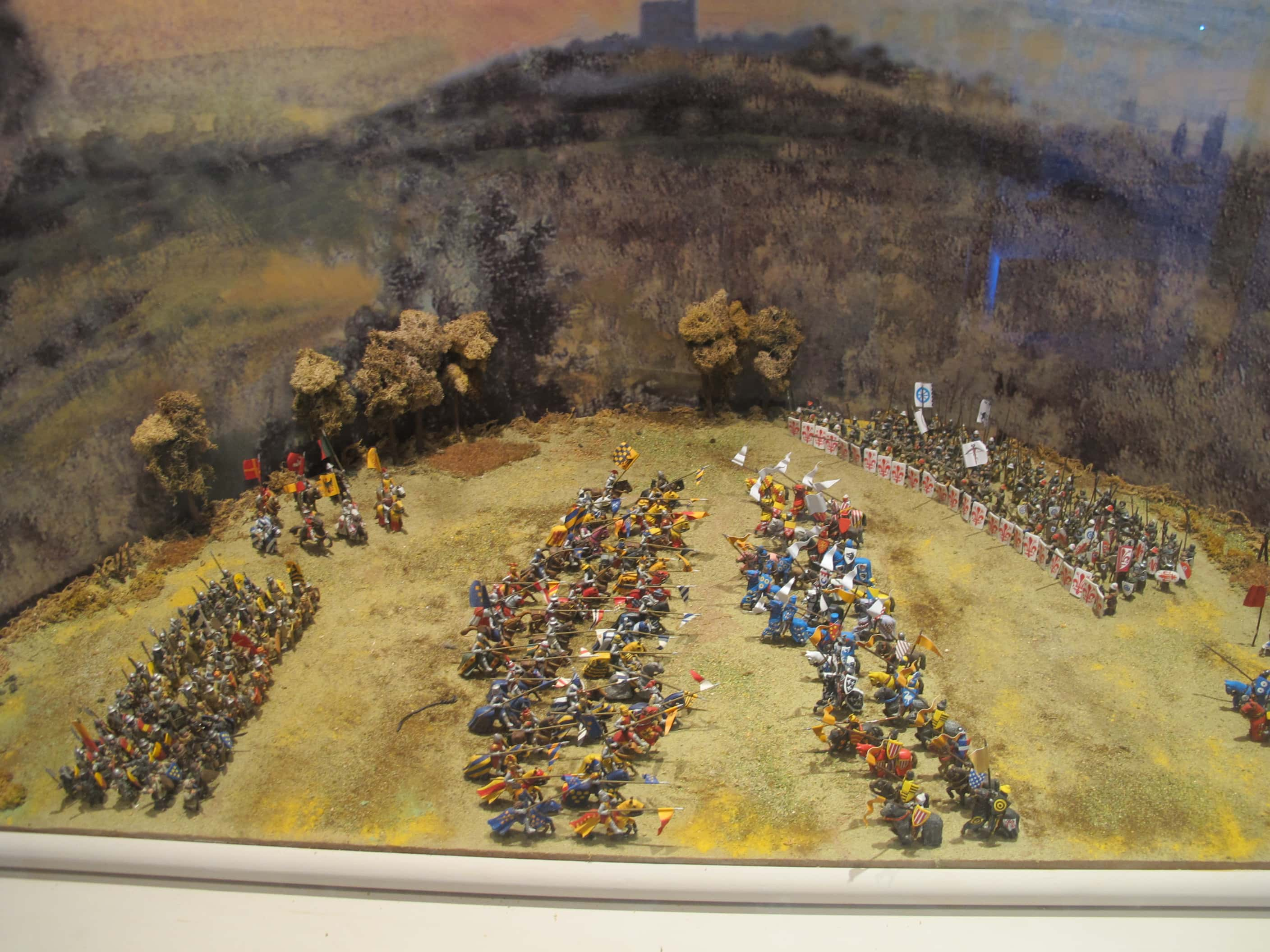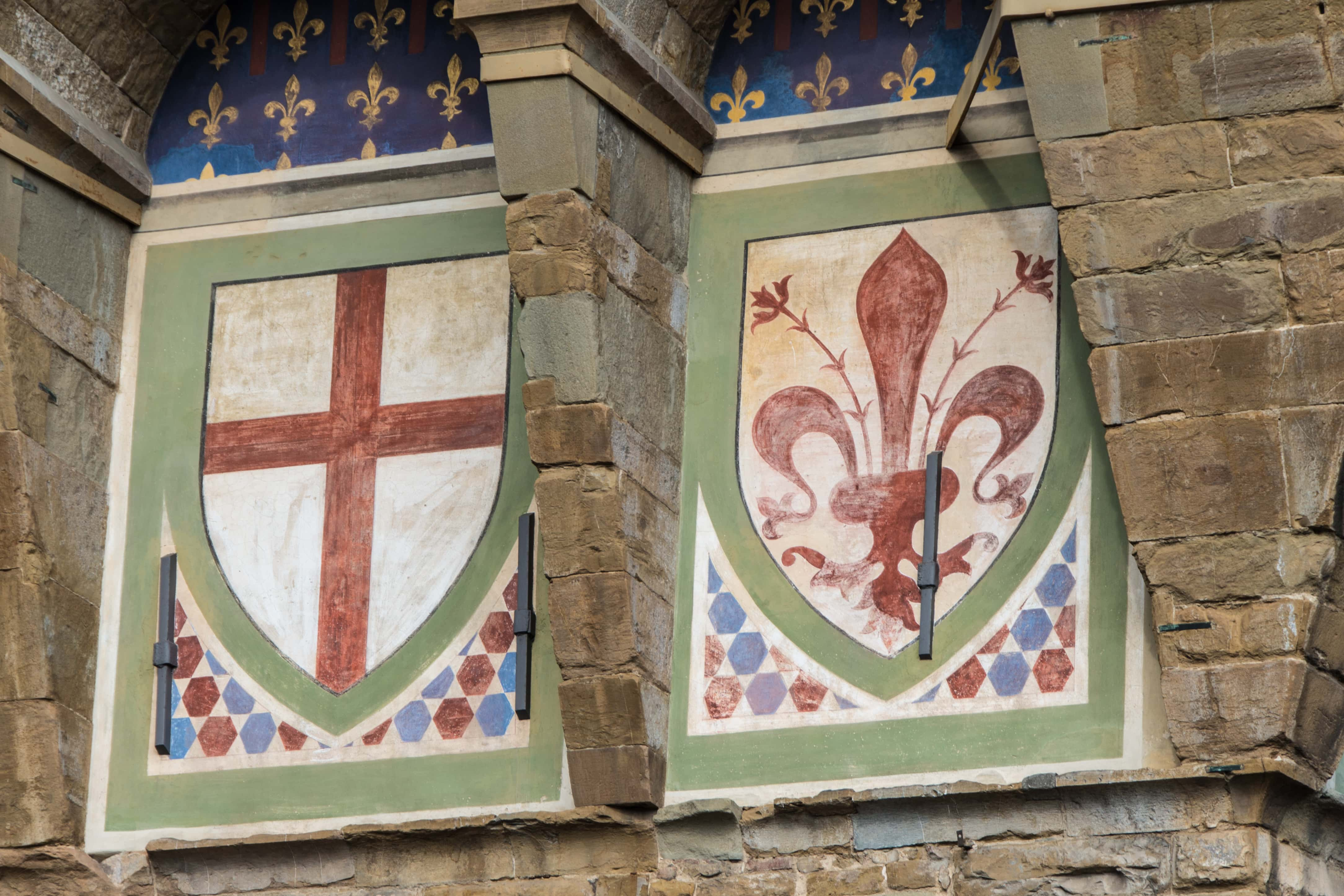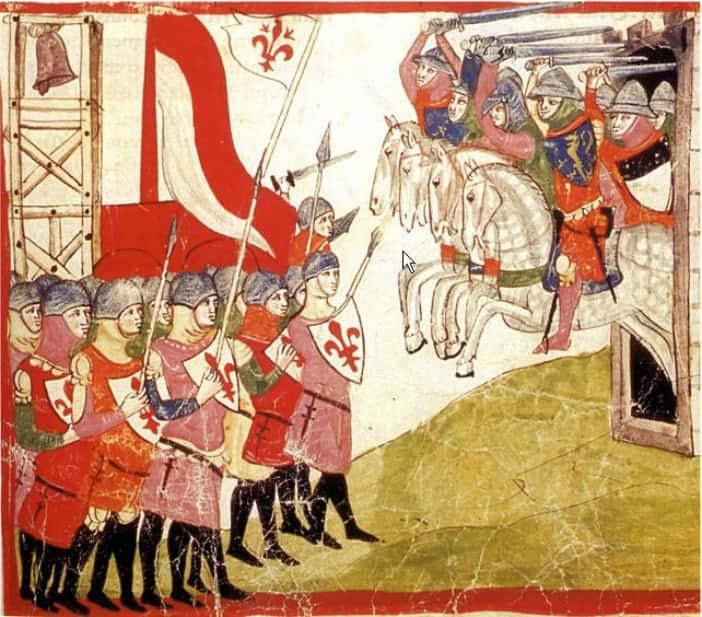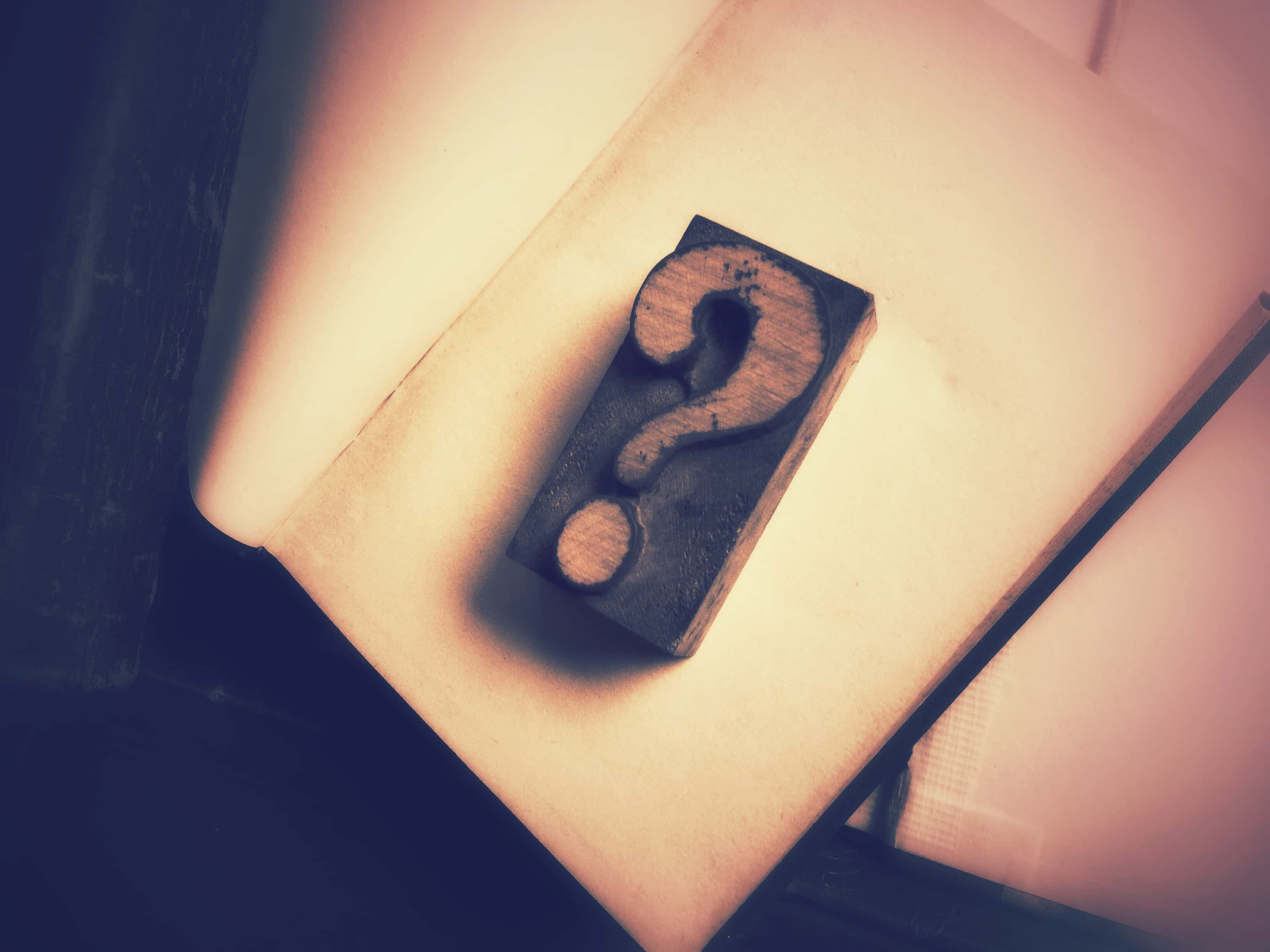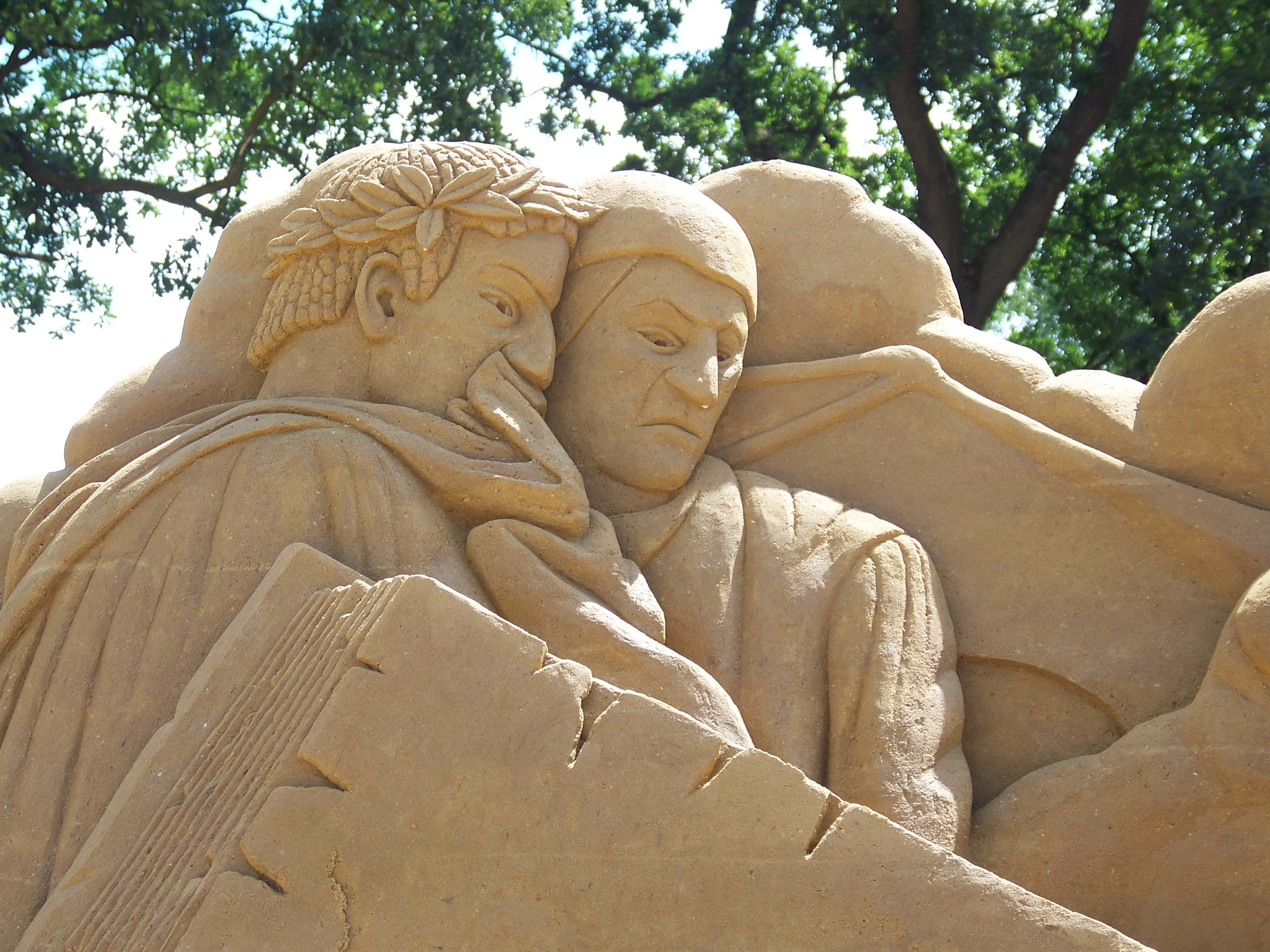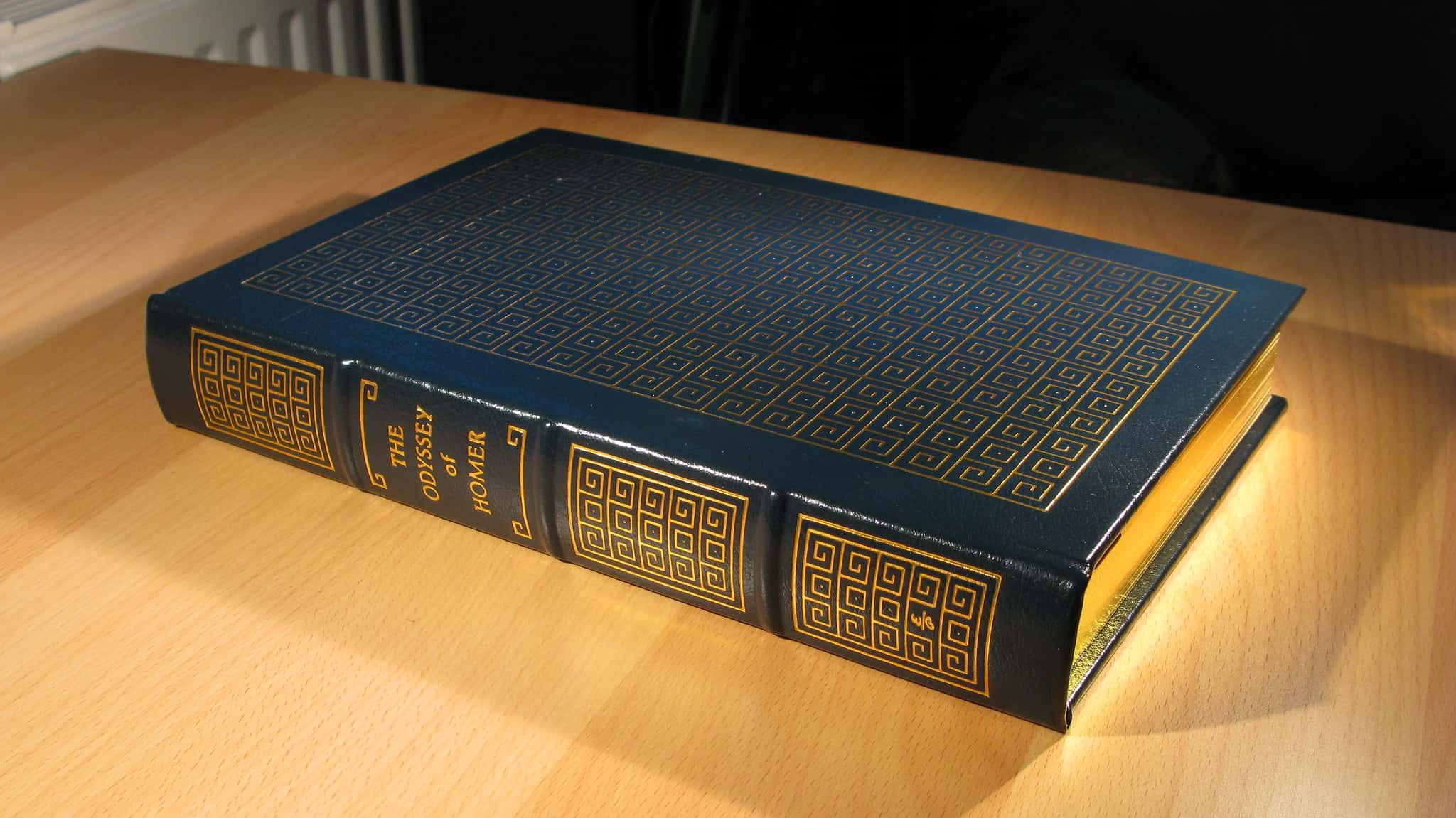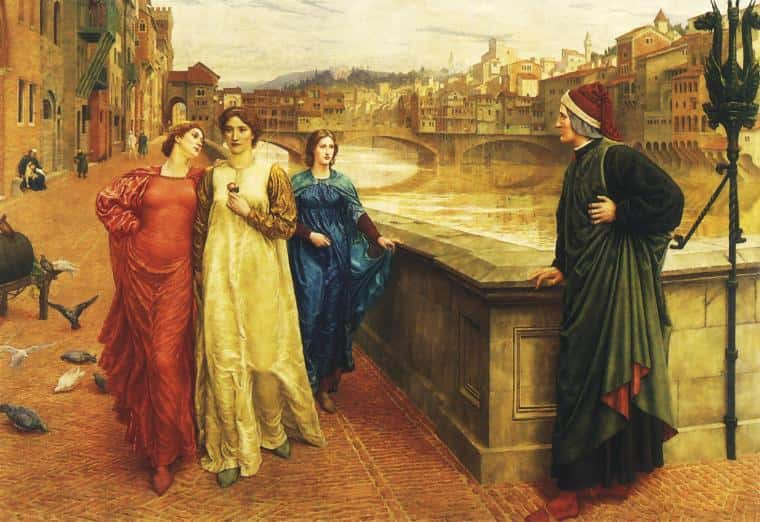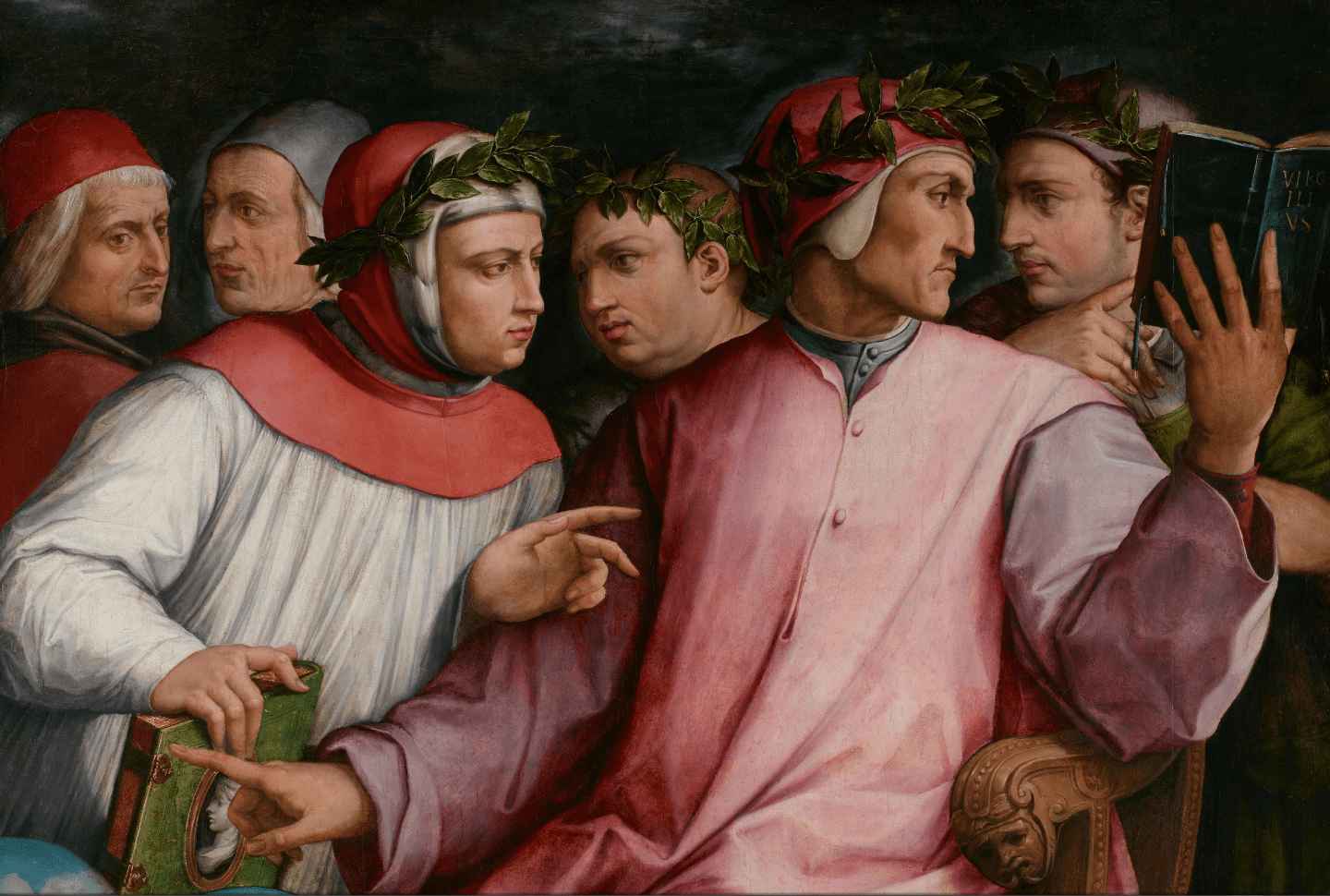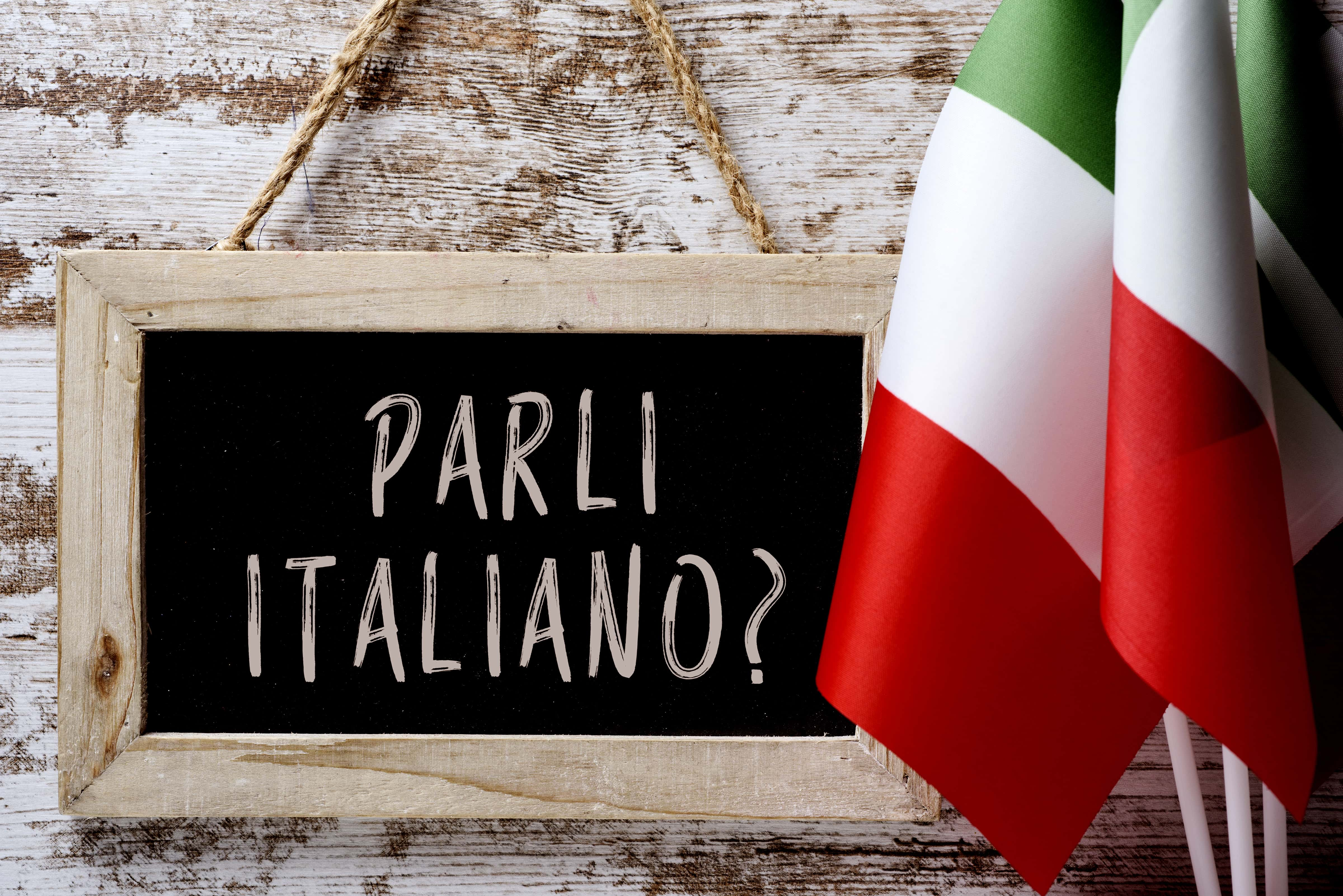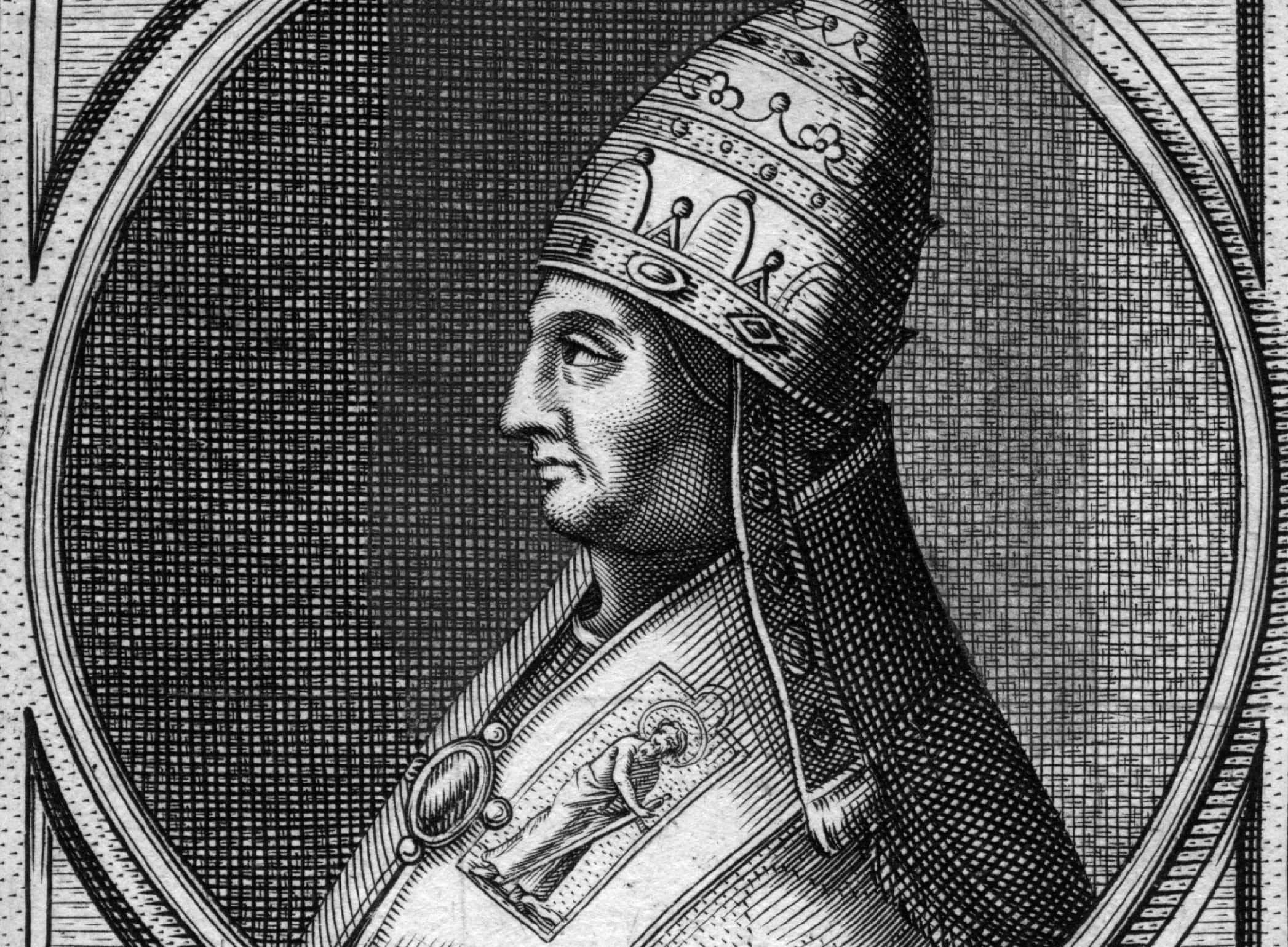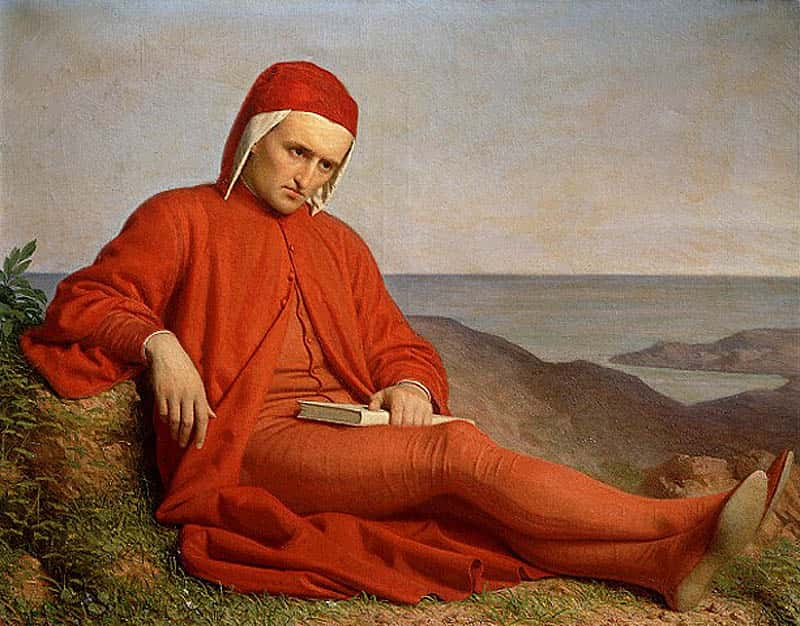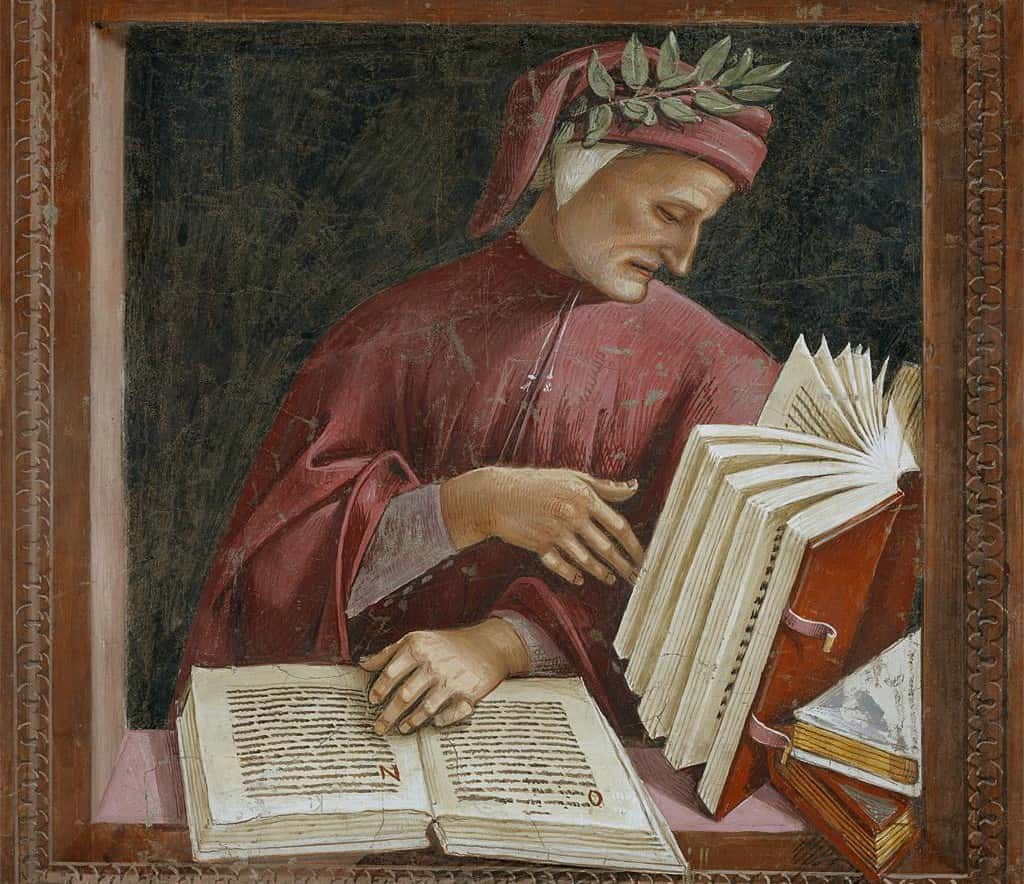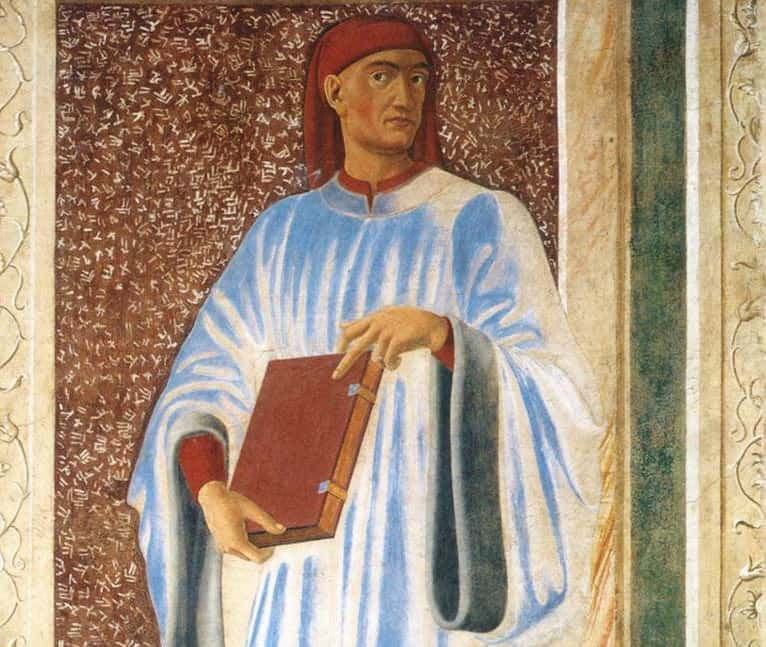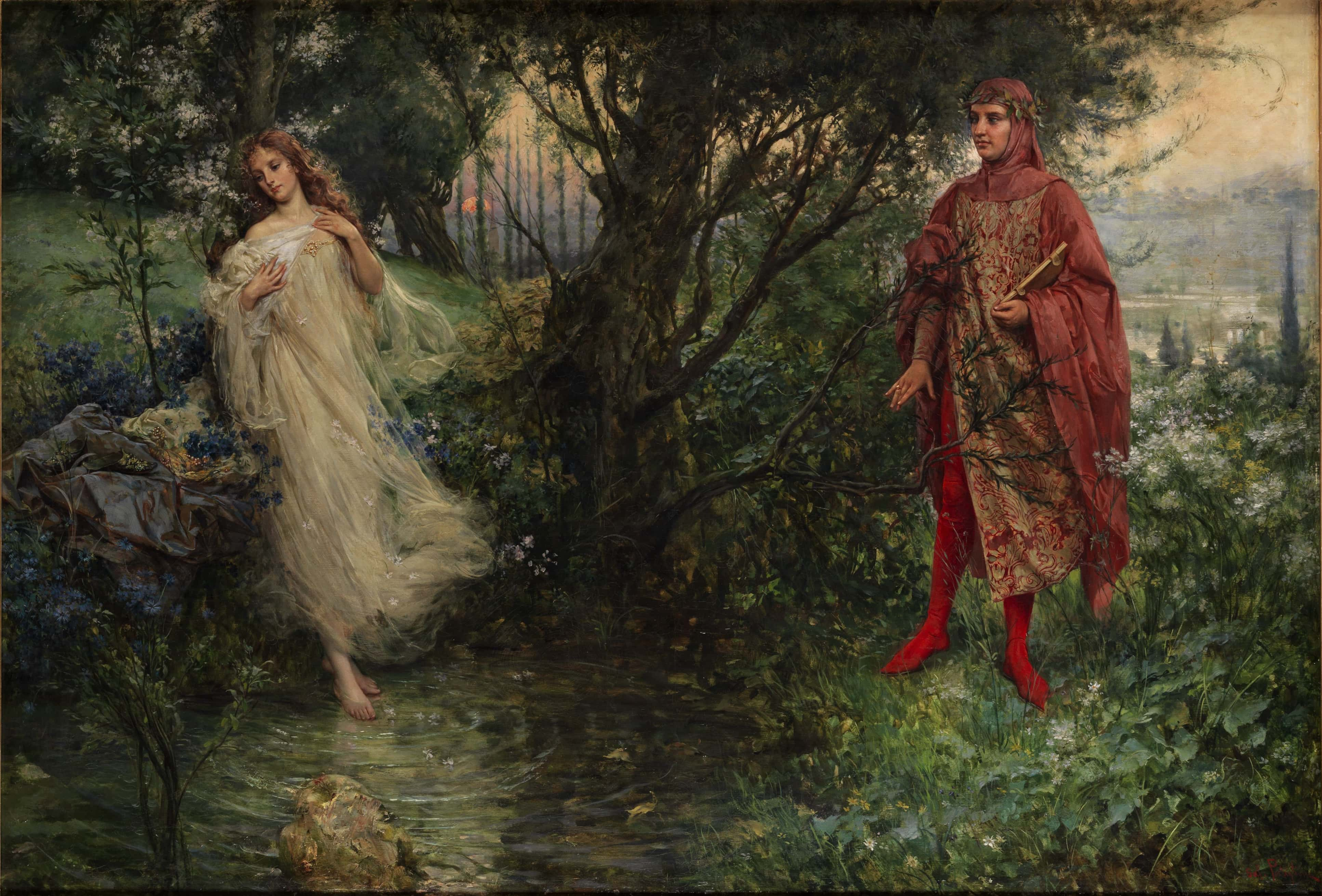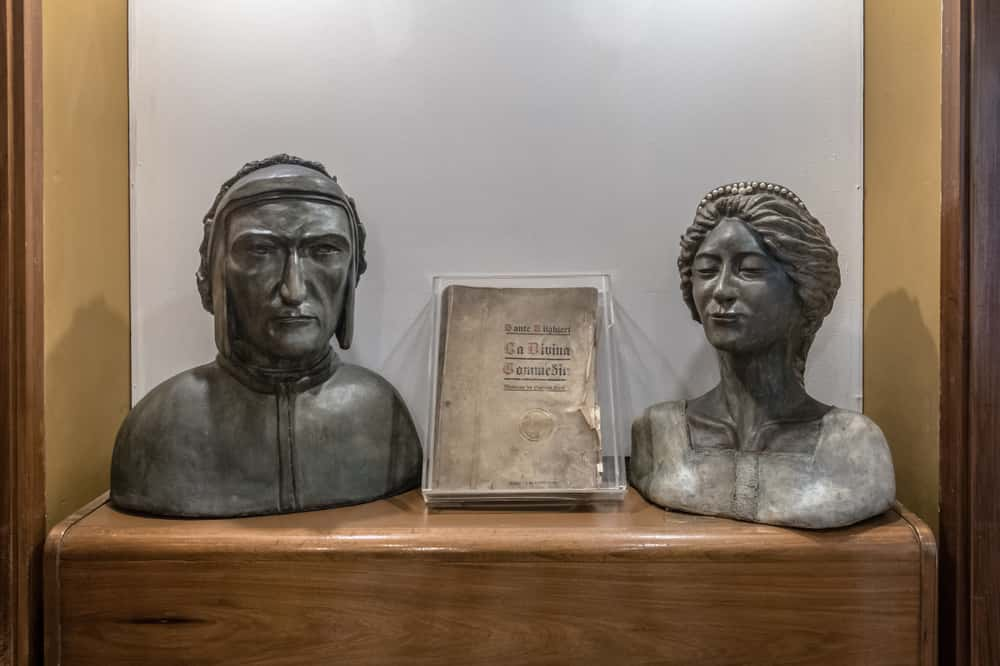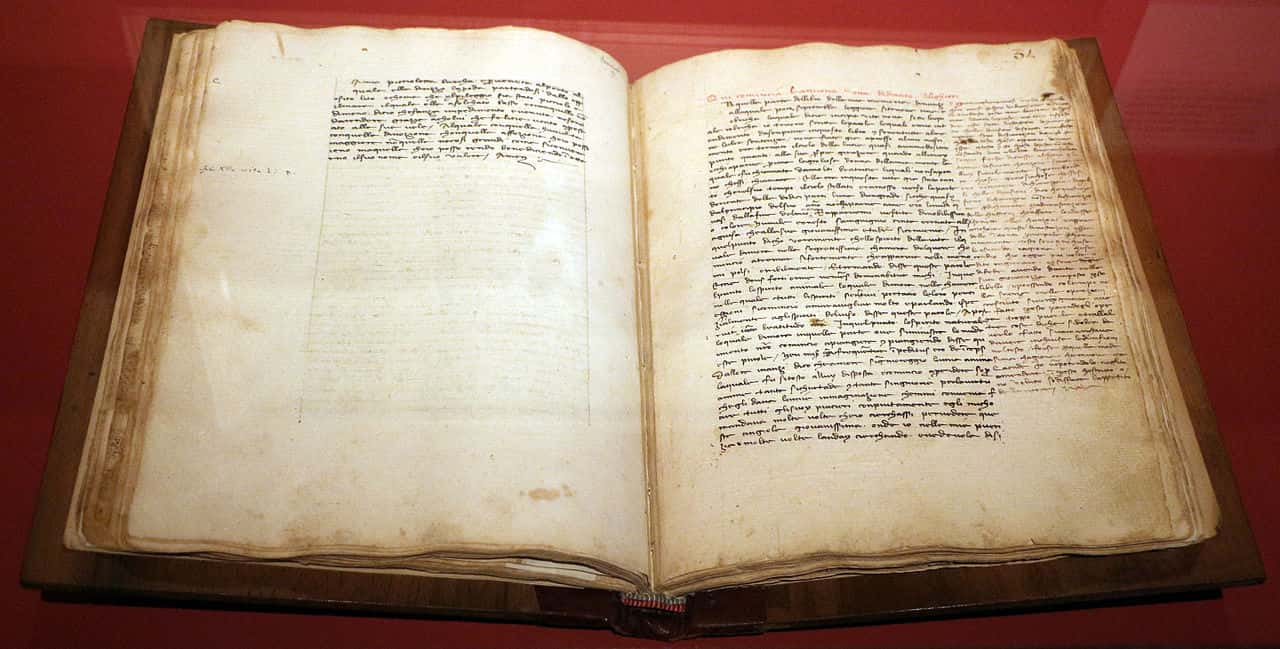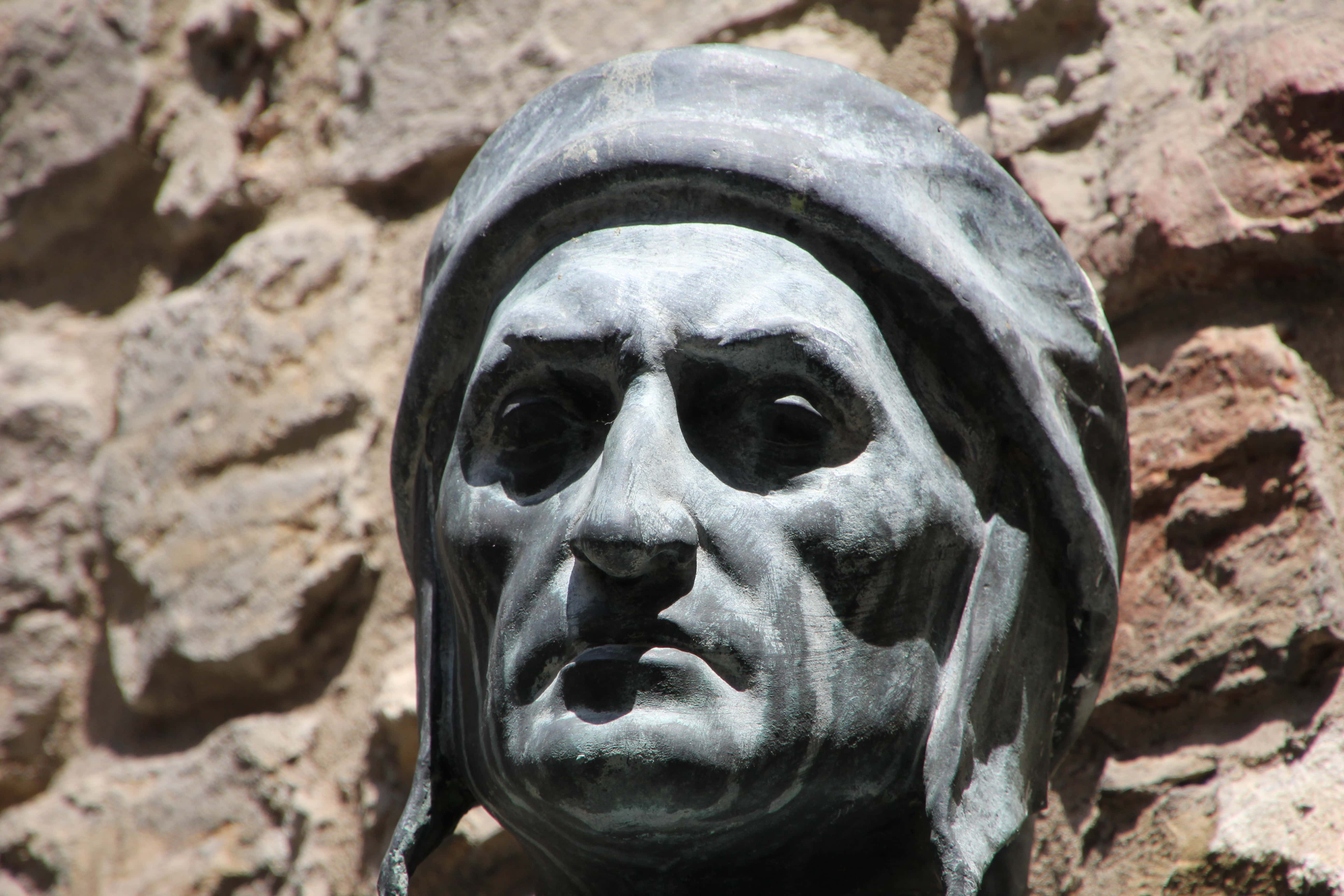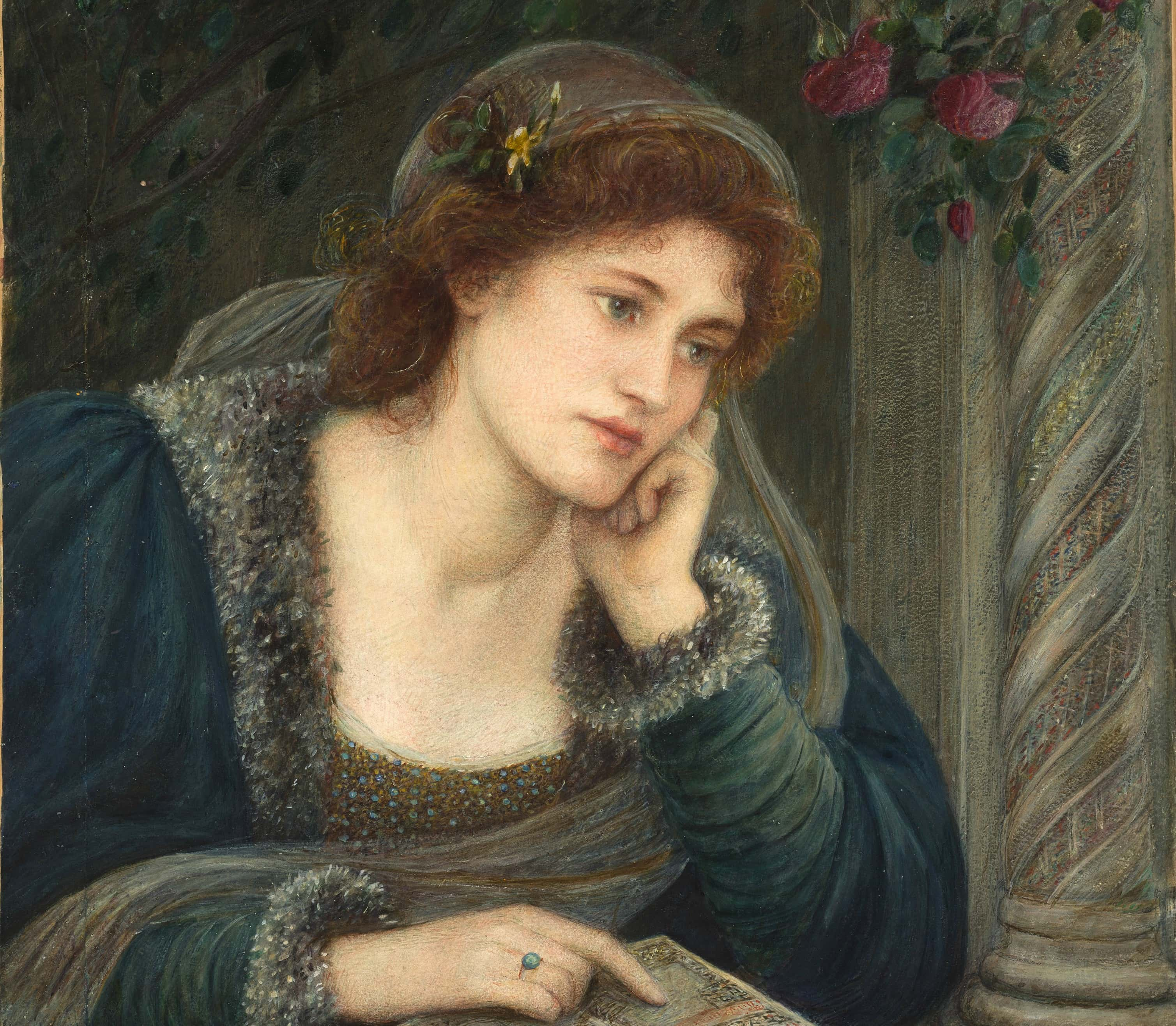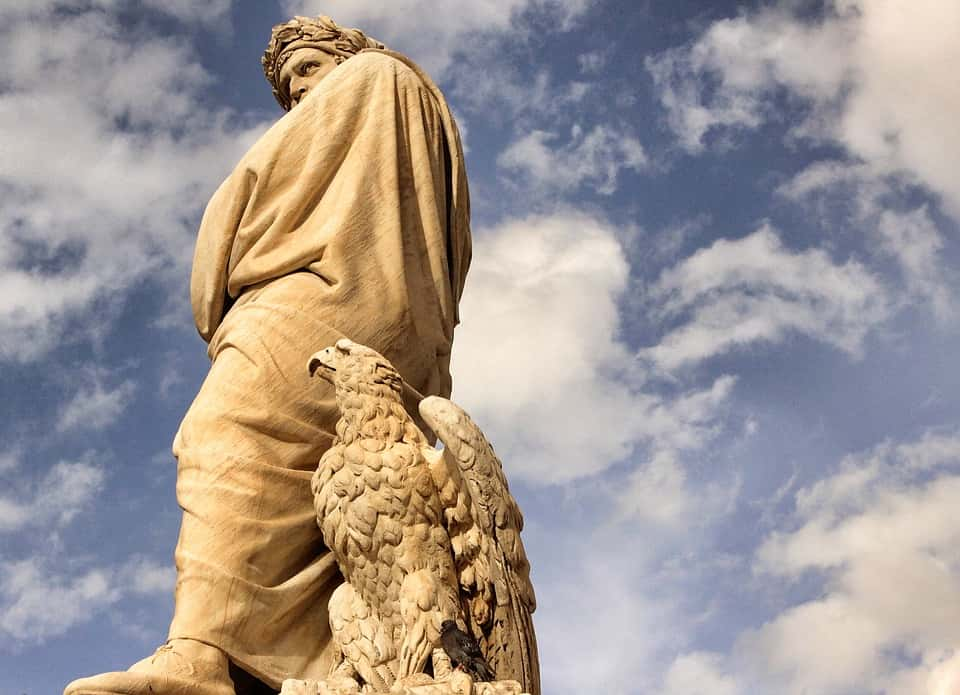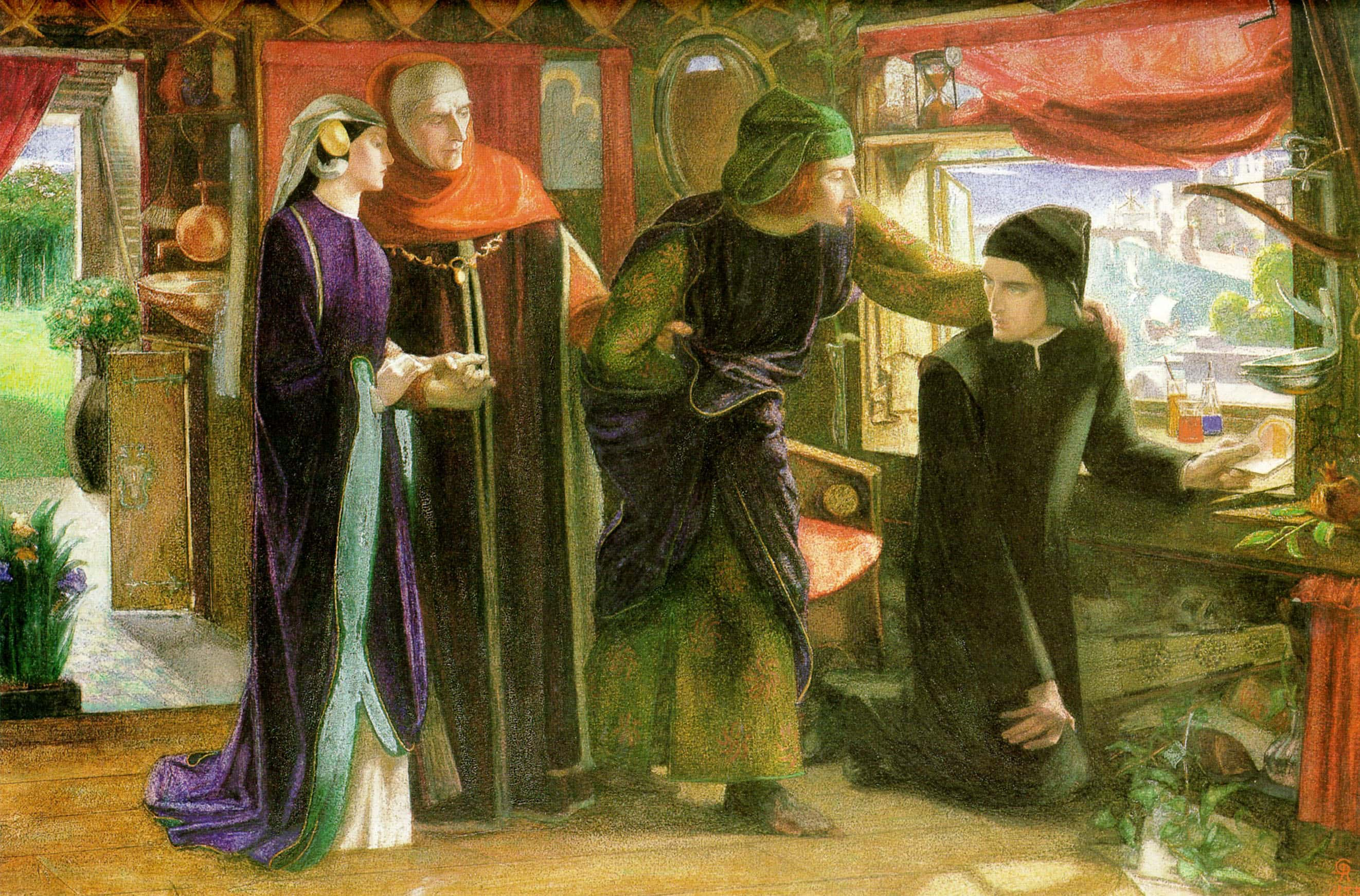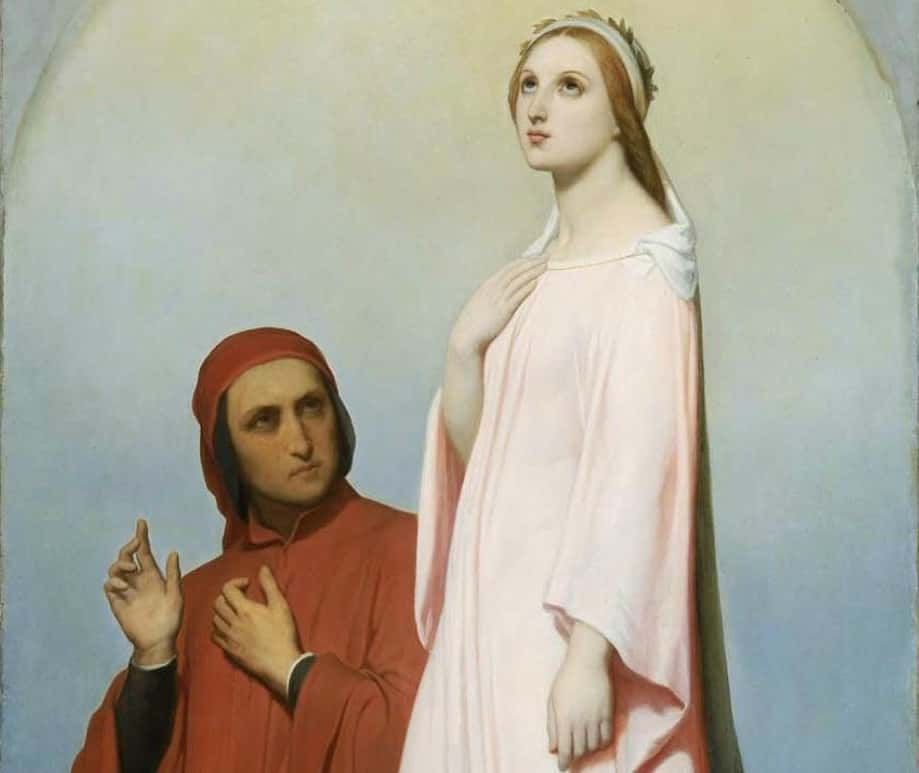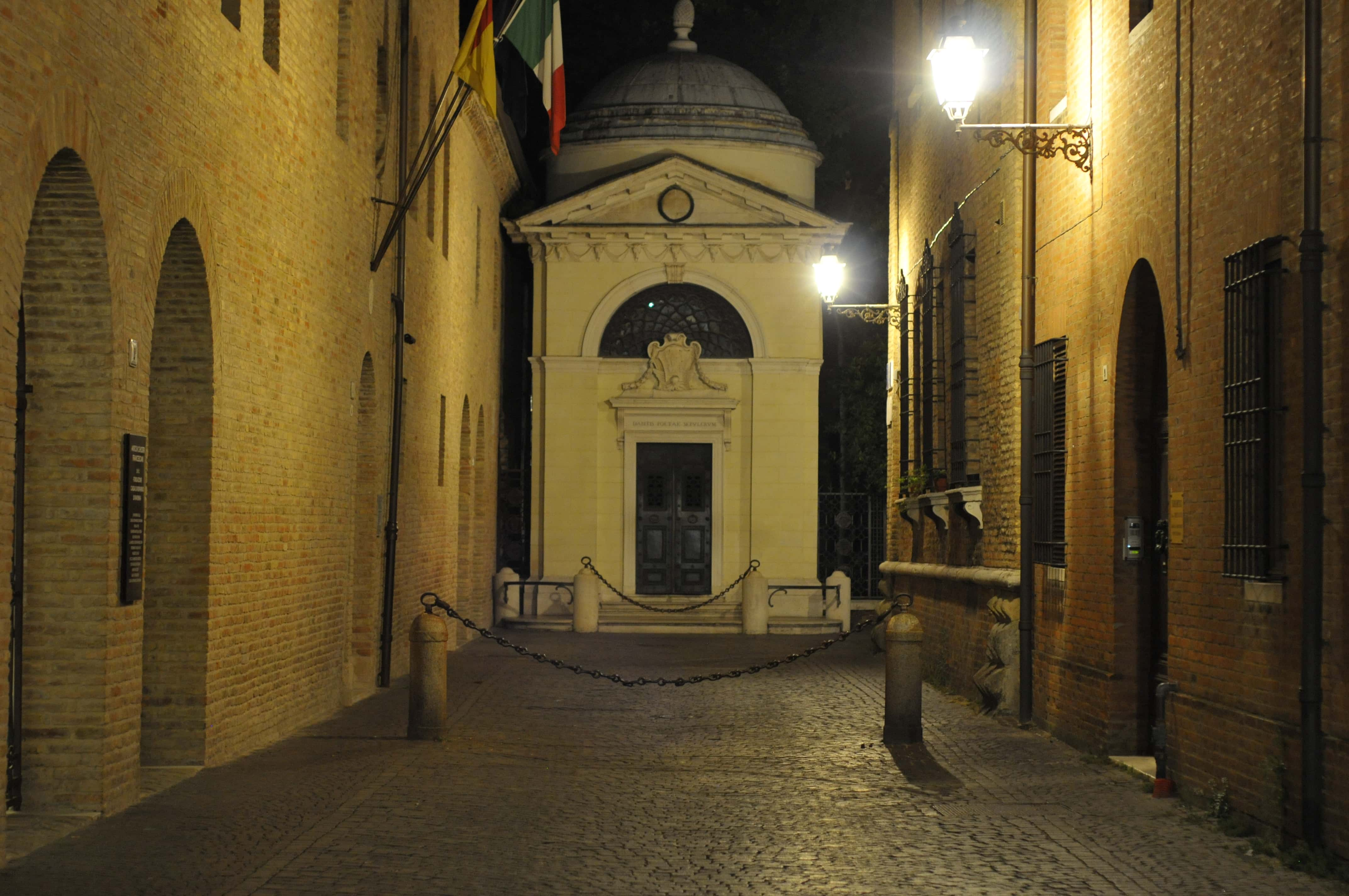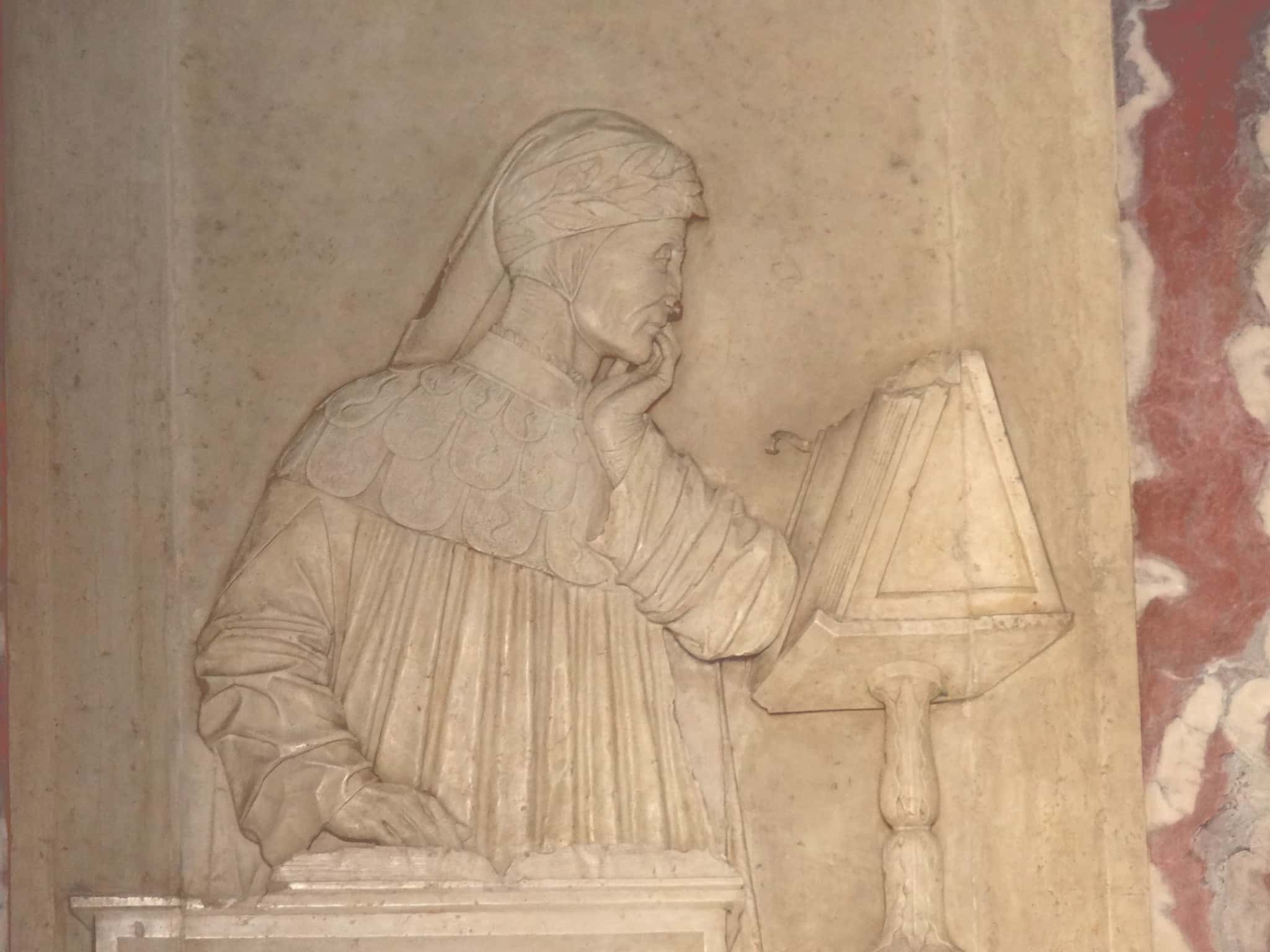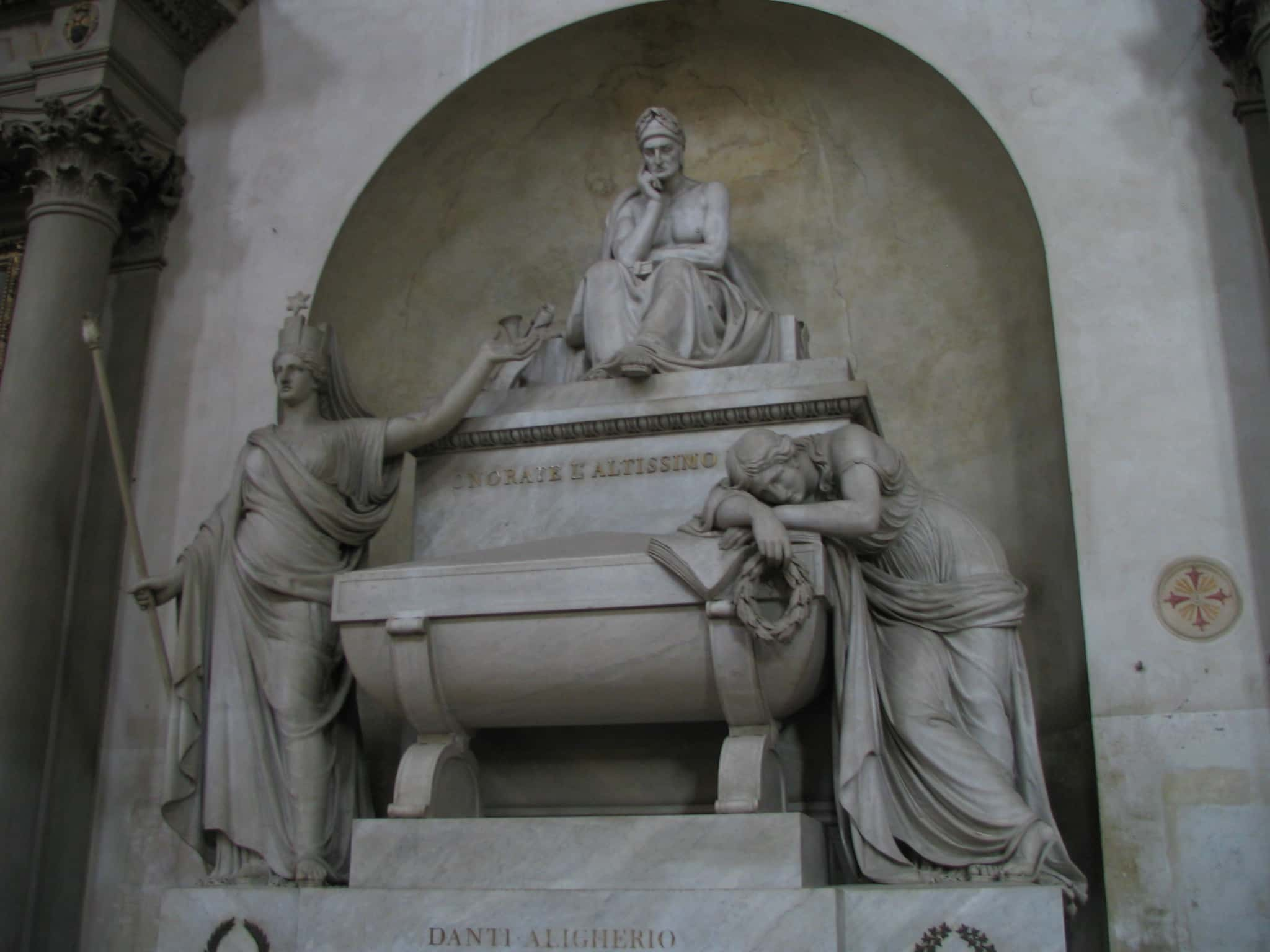The Middle Ages weren’t exactly a time when arts and culture flourished. But for every rule there’s an exception, and Dante Alighieri was definitely a bright exception. Widely considered one of the greatest poets in history, Dante produced the literary masterpiece of the medieval period: the Divine Comedy. Follow these 42 facts about the man we know as the “Supreme Poet.”
Dante Facts
1. Gemini Power
As we learn from Dante himself, he was likely born in Florence around 1265 under the sign of Gemini. In the last part of the Divine Comedy, Dante states, “As I revolved with the eternal twins, I saw revealed, from hills to river outlets, the threshing-floor that makes us so ferocious.” According to the Julian calendar, the poet could have been born on any day from May 11 to June 11.
2. The Prince or the Pauper
Some modern scholars often claim that Dante was born into a noble family, but the truth is much different. Though Dante’s father, Alighiero di Bellincione, was a dedicated supporter of the pope and had connections to several powerful Florentine noblemen, he wasn’t an aristocrat himself. Sorry to burst your bubble!
3. Roman Ruse
Dante would often claim to be of ancient Roman origin, but even he couldn't find clear evidence of this. In reality, the most ancient relative he could trace in his family tree was a man named Cacciaguida degli Elisei, who lived around 1100 AD. In other words, being a descendant of ancient Romans was more wishful thinking than actual fact.
4. Tragedy Strikes
Even though we don’t get to know a lot of information about Dante’s family, we do have some heartbreaking clues. According to his own writings, he lost his mother when he was around 10 years old.
5. The Art of War
Whether or not he was a descendant of Romans, the fact is Dante was a brave warrior regardless. That's right, it wasn't all book-lined studies and parchment paper for this poet. Dante saw the fog of war when he served the Guelphs as a horseman at the Battle of Campaldino on June 11, 1289 against the Ghibellines.
6. Can't We All Just Get Along?
Dante lived during an age of social instability and great political turbulence in Florence. The city was literally divided into two camps. On the one hand were the Guelphs, who supported the pope, and on the other the Ghibellines, a party serving the forces of the Holy Roman Empire. Dante, just like his father, was Team Pope.
7. Brother Against Brother
After the Guelphs dismantled the Ghibellines in 1289, things only got worse. They decided to divide into factions of their own, because apparently life in Florence wasn’t fun without conflict. This fight within a fight created the White Guelphs, who distanced themselves from papal influence, and the Black Guelphs, who continued to root for the pope.
8. The Doctor Is in
Dante worked as a pharmacist—but for an interesting reason. See, whoever wanted to actively participate in local public life and the political scene had to register with one of Florence’s many commercial or artisanal guilds. Dante was a very ambitious young man, even though he kind of sucked as a budding politician.
9. School Daze
Dante’s early education isn’t very clear, as there are no historical sources available on this subject. Historians believe that Dante got his main education either at home or a chapter school, which was the property of a local church or chapel.
10. Dante Discovers Poetry
According to the man himself, Dante loved poetry from quite a young age. However, he didn't consider it a career path first. It was only around when he discovered the master Bolognese poet Guido Guinizelli that he thought, "Hey, I should do this." He was so obsessed with Guinizelli’s works at that point that he referred to him in Purgatorio as a “father.”
11. Influences and Inspiration
Later, Dante would study the great Latin writers of antiquity, such as Cicero, Ovid, and especially Virgil, whom he admired deeply.
12. Homer Who?
Dante was also familiar with Homer’s epics, The Odyssey and The Iliad, through his favorite Latin poets. These men described the Greek writer's works as ‘’unsurpassed achievements’’ in the world of poetry. There is just one problem. Ironically, Dante never actually read any of Homer's works. Why? He couldn’t read the original Greek, and they weren't yet translated.
13. Beatrice the Muse
The biggest inspiration for Dante’s poetry, however, was not a poet or a man. It was a beautiful woman. The famous poet first met Beatrice Portinari—or that's what most scholars think her full name is—at the tender age of nine. As he described it in his works, it was love at first sight. Soon, the lovely Beatrice became one of the first and most famous muses in early modernity.
14. The Fab Five
At a young age, Dante met four men—Guido Cavalcanti, Lepo Gianni, Cino de Pistoia, and Brunetto Latini. Together, they became the founding fathers of the most significant Italian literary movement in the 13th century: Dolce Stil Novo, or "Sweet New Style." Basically, the fab five sought to spruce up Italian poetry by putting in more intelligent metaphors and subtle meanings.
15. Tuscan Dialect Goes Viral
Dante's works were so good, they revolutionized the Italian language in incredible ways. Today's standard Italian is based mostly off the Florentine dialect of Tuscan—that is, off of the language that Dante wrote in. Florentine quickly became the language of culture once Dante showed how beautiful it could be, and it spread like wildfire from there.
16. Father of the Italian Language
The Tuscan dialect even became the official language throughout the country when the Kingdom of Italy came into existence in 1861. Now you know why many describe Dante as the father of contemporary Italian language. What have you done lately?
17. Meeting the Pope
In an attempt to solve the issues between the White and Black Guelphs bloodlessly, the government of Florence sent a delegation to meet and talk with Pope Boniface VIII in 1301. Dante was among this team, and he must have made a very good impression. The pope kept him in Rome even when he dismissed the rest of the representatives.
18. Dante the “Traitor”
On November 1, 1301, Charles de Valois, brother of the king of France, invaded Florence to help the Black Guelphs defeat the Whites. After the destruction of the White party, the Blacks took control of the city and accused Dante of a number of things. Dante, who was still in Rome against his will, was painted as treasonous and corrupt.
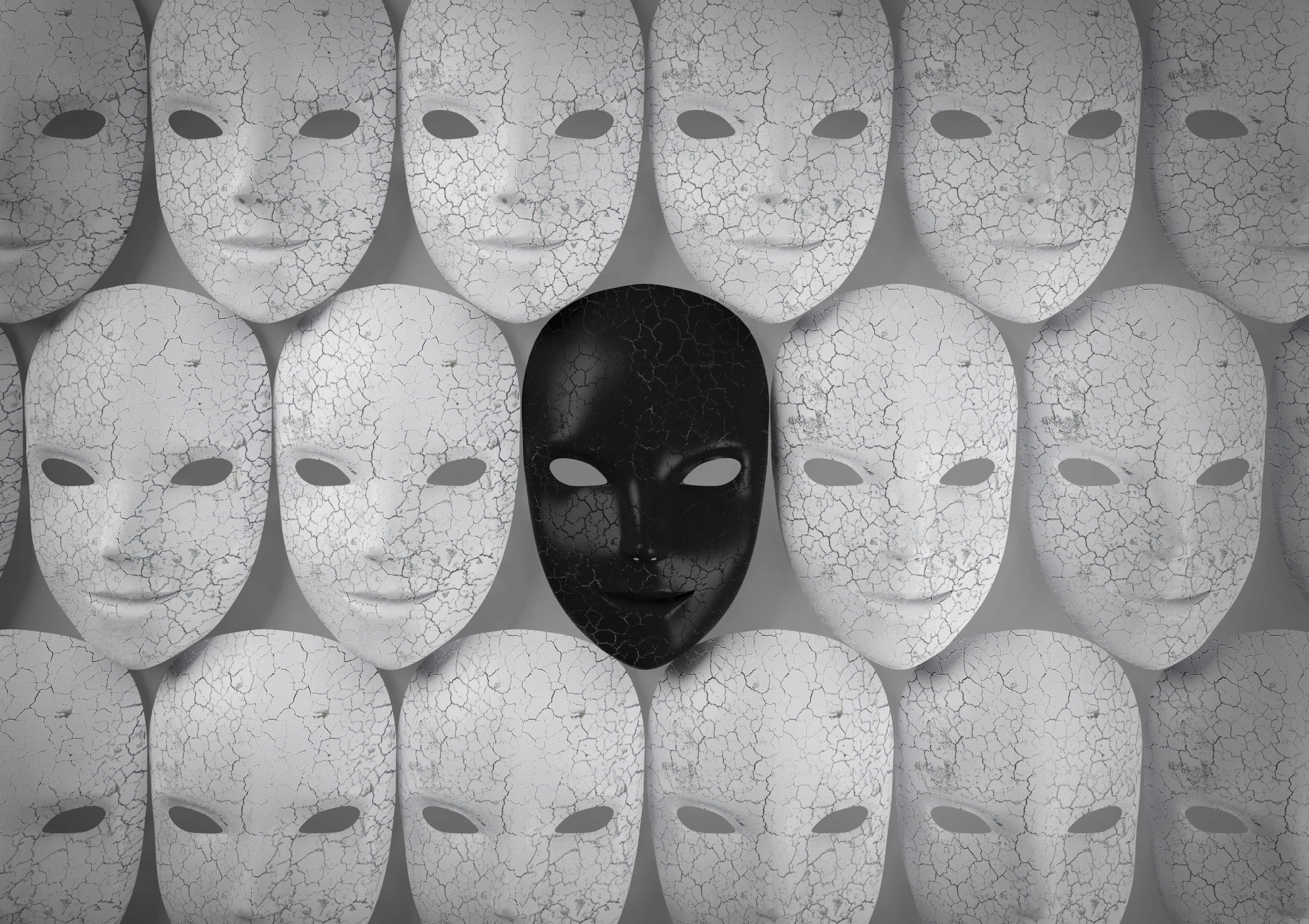 Shutterstock
Shutterstock
19. Wanted Dead...or Dead
As a result of these accusations, the revered poet was perpetually exiled from Florence and ordered to pay a ridiculously high fine. Sadly, the forces that be had seized most of Dante's property, making it impossible for him to pay it. Besides, he didn't think he was guilty. His refusal to cough up the money had dire consequences.
They permanently exiled him from Florence—and if he did enter the city before paying, he could be burned at the stake.
20. Pardon Me
The city of Florence eventually forgave Dante for his “crimes” and issued a pardon for the father of the Italian language. The only problem is that it took them a little more than seven centuries to do so. No matter how unbelievable and ironic it may sound, Dante was forgiven for his political beliefs nearly 706 years after the local authorities sentenced him to death.
21. Creative Exile
Being exiled or persecuted from somewhere, especially your beloved birthplace, isn’t really the best thing that can happen to you. Dante got his revenge in the best way possible. During his exile, Dante traveled all over Italy; met new, interesting people; and wrote the work that has become a literary monument—the Divine Comedy. So take that, Florence.
22. You're Gonna Know My Name
The first biography of Dante came out just 27 years after his death. The Italian author, poet, and hard-core fan of Dante’s works Giovanni Boccaccio wrote a book titled Vita di Dante (The Life of Dante) in 1348.
23. New Girlfriend
One of the new people Dante met while living in the city of Lucca was a woman named Gentucca. Dante even mentions her in the Purgatorio, expressing his appreciation and gratitude for how she made his life better while he was living in exile from his home.
24. Goddess Level
No matter whom he met or was romantically involved with, though, Dante was empty inside for one reason: Beatrice. He just couldn’t hide his unconditional love for her. In fact, in the Divine Comedy Dante pretty much gives Beatrice goddess status. It’s her divine-like qualities and pure love that guide Dante on the virtuous path.
25. Pioneering Leader
Dante was the first to use the interlocking three-line rhyme scheme known as terza rima. So actually, he invented it. He used it to harmonize the structure of his three-part epic poem the Divine Comedy.
26. A Comedy of Epic Proportions
Dante started writing the Divine Comedy in 1308, but only completed it a dozen years later, just before his death. This masterpiece of world literature is composed of 14,233 lines separated into three different books: the Inferno (Hell), Purgatorio (Purgatory), and Paradiso (Paradise). Each one consists of thirty-three sections.
27. Big Mistake, Huge
We may consider the Divine Comedy one of the classic works of world literature nowadays, but it used to have a horrible reputation. Due to its size and complex poetry, people ignored Dante’s greatest literary work for centuries. It wasn't until the 19th century that Romantic poets rediscovered it and made it part of literary culture.
28. An OG Influencer
According to a 2018 BBC Culture Poll pitched to writers, poets, and Nobel laureates, Dante’s Divine Comedy is the 12th most influential book of all time. Besides Shakespeare for his play Hamlet, only one poet ranked higher than him: Homer. Homer's masterpieces The Iliad and The Odyssey ranked 10th and first, respectively.
29. Other Works
The Divine Comedy wasn’t Dante’s only text, of course. The poet produced other works including the Convivio and La Vita Nuova (The New Life), where he beautifully narrates his love for who else? Beatrice.
30. 83 Beatrix
Dante may not have his own asteroid or minor planet named after him, but the woman he loved more than anything else in the world does. A large asteroid discovered by the Italian astronomer Annibale de Gasparis was named "83 Beatrix" in 1983 to honor Beatrice Portinari, the woman who inspired one of the finest literary masterpieces in world history.
31. Face the Music
Recently, a team of Italian scientists reconstructed Dante’s face. The results were surprising. Turns out, Dante wasn't exactly a stud. He actually had a pretty oversized nose—That's not me judging, that's just science talking.
32. Platonic Love at Its Best
Dante's love for Beatrice has a dark side. She had almost no clue who he was. He wouldn't even speak to her until he was around 18 years old. Even then, he never got a chance to know her better or confess his love to her. Regardless, the love and admiration he had for her is evident throughout his poetry, where he mentions her frequently.
33. Marrying Another
Even though he adored Beatrice all his life, they were always doomed to a heartbreaking end. You see, Dante was already betrothed to another woman soon after he met Beatrice. When he was 12, his father contracted him to marry Gemma di Manetto Donati. Ladies and gentlemen, this was how marriages and relationships happened back in Medieval Europe.
34. Like Father, Like Son
Dante and Gemma had a few children together, but the exact number varies according to the source in question. What we know for sure is that they had three children (two boys and a girl) before Dante was exiled and that one of them, Jacopo Alighieri, became a poet too.
35. Courtly Love
Because of Beatrice, Dante took the whole poetic conception of “courtly love” to another level. Courtly love was a medieval European literary idea of love that highlighted nobility and chivalry rather then, you know, gettin' it on. It was heavily influenced by the idea of Platonic love, as expressed by the ancient Greek philosopher Plato.
36. Goodbye, My Sweet
The year 1290 was one of the saddest in Dante’s life. At the tragically young age of 25, Beatrice died that year. Her death shocked the poet, and he quickly withdrew into himself, writing piles of poetry and taking comfort in Latin literature.
37. Playing Favorites
Though he wrote endlessly about Beatrice, as far as we know Dante never wrote a poem for his wife Gemma. Ouch.
38. Terminal Station: Ravenna
After learning that Dante was permanently exiled from Florence, in 1318 Prince Guido Novello de Polenta decided to invite the legendary poet to live and work in the province of Ravenna in Northern Italy. Ravenna was where Dante would eventually complete the Divine Comedy—and where he would take his last breath.
39. Cause of Death
Dante's sudden death was nothing short of tragic. When he was around 56, he was returning to Ravenna from a professional trip to Venice. Even though there are no medical records verifying this, it’s presumed that the poet died of malaria that he contracted while visiting the famed city of canals. He was buried in Ravenna’s Church of San Pier Maggiore.
40. How About "No"
In the years that followed Dante's death, the Florentine government was wracked with guilt at their treatment of the poet—and they went to disturbing lengths to reclaim him. The government repeatedly asked Ravenna’s authorities to return Dante’s remains. However, the custodians of his body in Ravenna gave the city the middle finger each time its officials made the request.
41. Desperate Times
Ravenna didn't just politely refuse to transport Dante's body back to Florence, either. Fearing that Florence would take his body by force, Ravenna even hid his bones inside a false wall of the church.
42. Empty Promises
The Florentines were stubborn buggers, though. In 1829, they just built Dante a tomb anyway; it remains empty to this day. In front of the hollow tomb is an inscription that reads “Onorate l’altissimo poeta,” which translates to “Honor the most exalted poet.” Too bad Florence didn’t honor Dante when he was actually alive.
Sources: 1, 2, 3, 4, 5, 6, 7, 8, 9, 10, 11, 12, 13, 14, 15, 16, 17

